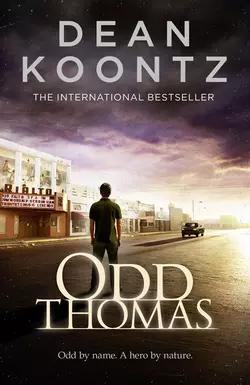Odd Thomas

Dean Koontz
Тип: электронная книга
Жанр: Эзотерика, оккультизм
Язык: на английском языке
Стоимость: 728.57 ₽
Статус: В продаже
Издательство: HarperCollins
Дата публикации: 16.04.2024
Отзывы: Пока нет Добавить отзыв
О книге: The 400 million copy worldwide bestseller Dean Koontz is at his very best in this critically-acclaimed page-turner – soon to be a major motion picture. Find out why Odd Thomas is the master storyteller’s most-loved creation.Odd by name, a hero by nature.He’s Odd. Odd Thomas, to be precise. Genius fry-cook at the Pico Mundo grill; boyfriend to the gorgeous Stormy Llewellyn – and possibly the only person with a chance of stopping one of the worst crimes in the bloody history of murder…Something evil has come to the desert town that Odd and Stormy call home. It comes in the form of a mysterious man with a macabre appetite, a filing cabinet full of information on the world’s worst killers, and strange, hyena-like shadows following him wherever he goes. Odd is worried. He knows things, sees things – about the living, the dead and the soon to be dead. Things that he has to act on. Now he’s terrified for Stormy, himself and Pico Mundo. Because he knows that on Wednesday August 15, a savage, blood-soaked whirlwind of violence and murder will devastate the town.Today is August 14. And Odd is far from sure he can stop the coming storm…